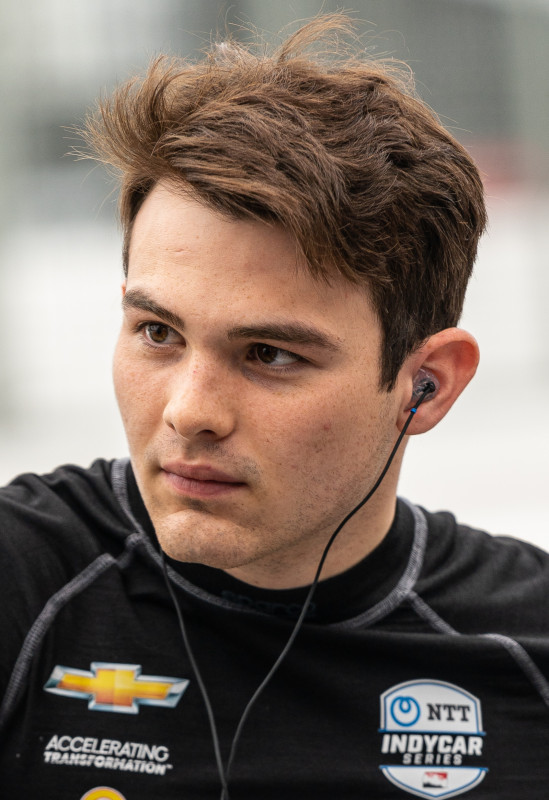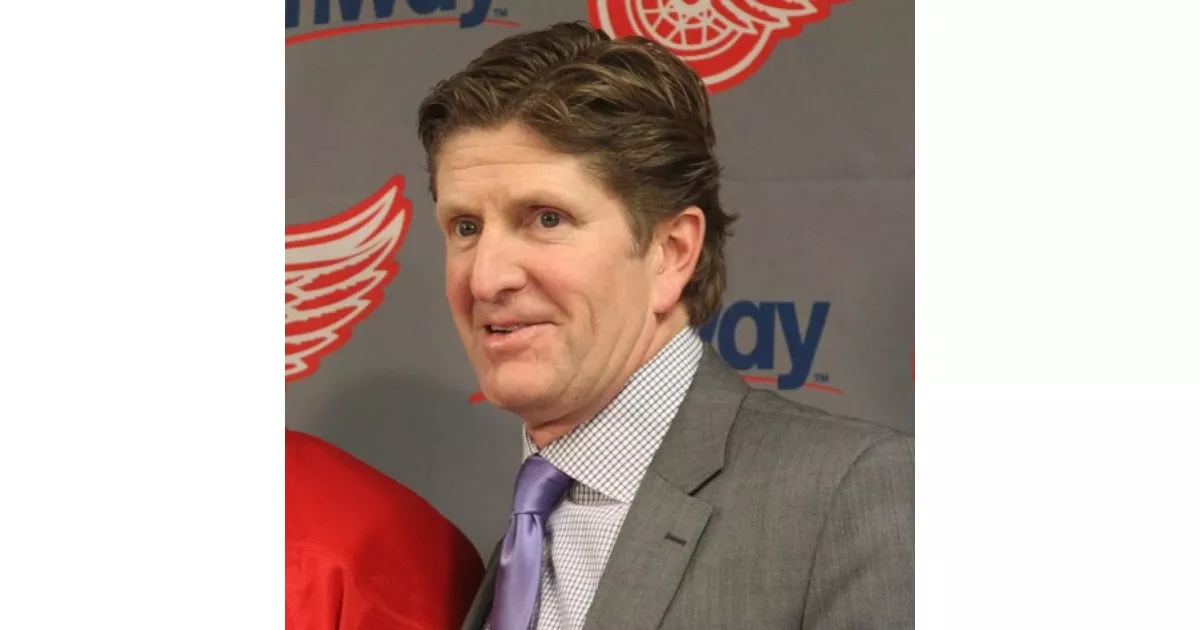Mike Babcock is a Canadian former ice hockey player and coach known for his successful yet controversial career in the NHL. He achieved significant milestones like leading the Anaheim Ducks to the Stanley Cup Finals in 2003 and securing a Stanley Cup victory with the Detroit Red Wings in 2008. His coaching prowess was evident during his tenure with the Red Wings, where he led them to playoff appearances every year. However, his career was marked by controversy, including his firing from the Toronto Maple Leafs in 2019 and his resignation from the Columbus Blue Jackets in 2023 amidst allegations of misconduct. Despite his accomplishments, Babcock's legacy remains complex due to these controversies.
April 29, 1963: Birth of Mike Babcock
Mike Babcock was born on April 29, 1963.
1975: Babcock's Upbringing and Education
Although born in Manitouwadge, Ontario, Mike Babcock considers Saskatoon, Saskatchewan, his hometown, having settled there with his family in 1975. He attended St. James Elementary School and Holy Cross High School in Saskatoon, where he is honored on the "Wall of Honour."
1980: Mike Babcock Begins Playing for the Saskatoon Blades
Mike Babcock starts his journey with the Saskatoon Blades of the Western Hockey League (WHL) in 1980.
1982: Mike Babcock Joins the WHL Kelowna Wings
Mike Babcock joined the WHL Kelowna Wings in 1982.
1983: Mike Babcock's Time at McGill University as a Two-Time All-Star Defenceman
From 1983-1987, Mike Babcock was a two-time all-star defenceman at McGill University, served as captain, and won the Bobby Bell trophy as team MVP.
1984: Viktor Tikhonov's First Olympic Gold
Viktor Tikhonov coached the Soviet Union national ice hockey team to a gold medal victory at the 1984 Winter Olympics in Sarajevo, Yugoslavia.
September 1985: Mike Babcock Attends Vancouver Canucks Training Camp
Mike Babcock attended the Vancouver Canucks NHL training camp in September 1985 and played one exhibition game with the team.
1986: Mike Babcock Graduates from McGill University
Mike Babcock graduated from McGill University in 1986 with a bachelor's degree in physical education.
1987: Start of Mike Babcock's Coaching Career
Mike Babcock began his coaching career in 1987.
1987: Mike Babcock Joins Whitley Warriors as Player-Coach
Mike Babcock moved to the United Kingdom and joined the Whitley Warriors as a player-coach in 1987.
1988: Mike Babcock Becomes Head Coach at Red Deer College
Mike Babcock was appointed as head coach at Red Deer College in Alberta in 1988.
1988: Viktor Tikhonov's Second Olympic Gold
Viktor Tikhonov, coaching the Soviet Union, achieved a second consecutive Olympic gold medal at the 1988 Winter Olympics in Calgary, Canada, making him the first coach to achieve this feat.
1989: Mike Babcock Earns Coach-of-the-Year Honors at Red Deer College
Mike Babcock won coach-of-the-year honours in 1989 while coaching at Red Deer College.
1991: Mike Babcock Begins Coaching the Moose Jaw Warriors
Mike Babcock began coaching the Moose Jaw Warriors in the Western Hockey League (WHL) in 1991.
1991: Start of Mike Babcock's Continuous Coaching Career
Mike Babcock began his continuous coaching career in 1991.
1993: Mike Babcock Fired from Moose Jaw Warriors, Joins University of Lethbridge
After missing the playoffs, Mike Babcock was fired by the Moose Jaw Warriors in 1993. He then accepted the head coaching position at the University of Lethbridge.
1993: Mike Babcock Earns Canada West Coach-of-the-Year Honors
Mike Babcock earned Canada West coach-of-the-year honors in 1993-1994 for his success in turning around the Lethbridge Pronghorns program.
1994: Mike Babcock Becomes Head Coach of the WHL's Spokane Chiefs
Mike Babcock was appointed head coach of the WHL's Spokane Chiefs in 1994.
1994: Mike Babcock Guides the University of Lethbridge to the CIS University Cup
Mike Babcock, as coach, led the University of Lethbridge to victory in the CIS University Cup in 1994.
1995: Spokane Chiefs Reach WHL Playoffs Final Round
The Spokane Chiefs, coached by Mike Babcock, advanced to the final round of the playoffs in the 1995-1996 season, ultimately losing to the Brandon Wheat Kings.
1996: Mike Babcock Named West Division Coach of the Year
Mike Babcock received the West Division Coach of the Year award in the 1995-1996 season.
1997: Coaching Canada's Junior Team to Gold
In 1997, Mike Babcock coached Canada's junior hockey team at the World Junior Championships in Switzerland, leading them to a gold medal victory and continuing Canada's winning streak to five consecutive gold medals.
1997: Mike Babcock Leads Team Canada to Gold at the IIHF World Junior Championships
Mike Babcock served as coach for Team Canada, leading them to a gold medal win at the IIHF World Junior Championships in 1997.
1998: Spokane Chiefs Participate in the Memorial Cup
The Spokane Chiefs, under the coaching of Mike Babcock, participated in the 1998 Memorial Cup, losing in the semi-final to the Guelph Storm.
1999: Mike Babcock Receives Second West Division Coach of the Year Award
Mike Babcock earned his second West Division Coach of the Year award in the 1999-2000 season.
2000: Mike Babcock Coaches the Cincinnati Mighty Ducks
Mike Babcock coached the American Hockey League's Cincinnati Mighty Ducks starting in the 2000-2001 season.
2000: Mike Babcock's Second West Division Coach of the Year Award
Mike Babcock received his second West Division Coach of the Year award in the 1999-2000 season.
2001: Cincinnati Mighty Ducks Achieve Franchise-High Wins and Points under Mike Babcock
The Cincinnati Mighty Ducks, coached by Mike Babcock, achieved a franchise record of 41 wins and 95 points during the 2001-2002 season.
May 22, 2002: Mike Babcock Named Head Coach of the NHL's Mighty Ducks of Anaheim
Mike Babcock was appointed as the head coach of the NHL's Mighty Ducks of Anaheim on May 22, 2002.
2002: Start of Mike Babcock's NHL Coaching Career
Mike Babcock's NHL coaching career began in 2002.
2003: Mike Babcock Coaches Mighty Ducks of Anaheim to Stanley Cup Finals
In 2003, Mike Babcock, as head coach, led the Mighty Ducks of Anaheim to their first Stanley Cup Finals appearance, where they lost to the New Jersey Devils.
2003: Mighty Ducks of Anaheim Reach First Stanley Cup Finals under Mike Babcock
The Mighty Ducks of Anaheim, coached by Mike Babcock, made their first appearance in the Stanley Cup Finals in 2003 but lost to the New Jersey Devils.
2004: Mike Babcock Declines Offer from Mighty Ducks of Anaheim
Following the 2004-2005 NHL lockout, Mike Babcock declined an offer to continue coaching the Mighty Ducks of Anaheim.
July 15, 2005: Mike Babcock Appointed Head Coach of the Detroit Red Wings
Mike Babcock was named the head coach of the Detroit Red Wings on July 15, 2005.
2005: Babcock's Coaching Philosophy
Beginning in the 2005-2006 season, Mike Babcock's coaching style, which prioritizes skill and puck possession over physicality and penalties, became evident.
2005: Mike Babcock Joins the Detroit Red Wings
Mike Babcock signed with the Detroit Red Wings as their head coach in 2005.
2006: Detroit Red Wings Eliminated in First Round of Playoffs by Edmonton Oilers
The Detroit Red Wings, considered strong contenders, were unexpectedly defeated by the Edmonton Oilers in the first round of the 2006 playoffs under Mike Babcock's coaching.
December 15, 2007: 200th NHL Win
Mike Babcock achieved his 200th NHL career win as a coach on December 15, 2007, while coaching the Detroit Red Wings to a 5-2 victory against the Florida Panthers.
2007: Detroit Red Wings Eliminated by Anaheim Ducks in Western Conference Finals
The Detroit Red Wings, coached by Mike Babcock, were eliminated by his former team, the Anaheim Ducks, in the Western Conference Finals of the 2007 playoffs.
June 4, 2008: Stanley Cup Championship
Mike Babcock coached the Detroit Red Wings to a Stanley Cup victory on June 4, 2008, defeating the Pittsburgh Penguins in game six of the finals. This marked the team's fourth Stanley Cup win since 1997.
June 2008: Jack Adams Award Nomination and Contract Extension
Following the 2007-2008 season, Mike Babcock was nominated for the Jack Adams Award, which recognizes the NHL coach who contributes the most to his team's success. He ultimately placed third. In June 2008, he signed a three-year contract extension with the Detroit Red Wings.
2008: Winning the Stanley Cup with the Detroit Red Wings
In 2008, Mike Babcock achieved a significant career milestone by leading the Detroit Red Wings to a Stanley Cup victory. This victory contributed to his entry into the prestigious Triple Gold Club.
2008: Mike Babcock Becomes Second McGill Hockey Player to Coach a Stanley Cup Winner
In 2008, Mike Babcock became the second McGill hockey player to coach a Stanley Cup-winning team, after Lester Patrick.
2008: Mike Babcock Leads Detroit Red Wings to Stanley Cup Victory
In 2008, Mike Babcock coached the Detroit Red Wings to a Stanley Cup victory.
2008: Stanley Cup Finals Rematch
In the 2008-2009 season, the Detroit Red Wings, led by coach Mike Babcock, faced off against the Pittsburgh Penguins in a rematch of the previous year's Stanley Cup Finals. Despite having home-ice advantage and a 3-2 series lead, the Red Wings lost the series in seven games. This loss made Babcock the first coach in NHL history to lose a Stanley Cup Finals series in game seven with two different teams.
June 24, 2009: Appointed Head Coach for Team Canada at the 2010 Winter Olympics
On June 24, 2009, Mike Babcock was announced as the head coach of Team Canada for the 2010 Winter Olympics in Vancouver.
2009: Criticism for Benching Players During Significant Games
Mike Babcock faced criticism for his decision to bench players during games of personal significance, such as benching Chris Chelios at the 2009 Winter Classic in his hometown of Chicago, drawing scrutiny to his coaching methods.
July 17, 2010: Mike Babcock Day in Saskatoon
To celebrate Babcock's achievements, including his entrance into the Triple Gold Club, his hometown of Saskatoon declared July 17, 2010, as "Mike Babcock Day."
October 2010: Contract Extension with the Red Wings
In October 2010, Mike Babcock signed a four-year contract extension with the Detroit Red Wings, extending his tenure with the team through the 2014-2015 season.
2010: Mike Babcock Leads Team Canada to Gold at the Vancouver Winter Olympics
Mike Babcock coached Team Canada to a gold medal win at the 2010 Winter Olympics held in Vancouver.
July 1, 2011: Commodore's Allegations Against Babcock
Mike Commodore publicly accused Babcock of mistreatment, alleging that Babcock had promised him playing time but later sidelined him due to personal bias, specifically during the summer of 2011.
2011: Playoff Loss to the San Jose Sharks
During the 2011 Stanley Cup Playoffs, the Detroit Red Wings, coached by Mike Babcock, faced the San Jose Sharks in the second round. Despite falling behind 3-0 in the series, the Red Wings battled back to force a seventh game, which they ultimately lost 3-2.
November 25, 2013: Mike Babcock Receives Honorary Doctor of Laws from McGill University
Mike Babcock was awarded an honorary Doctor of Laws (LL.D.) by McGill University on November 25, 2013.
April 8, 2014: Most Wins as Red Wings Coach
Mike Babcock secured his 414th victory as the head coach of the Detroit Red Wings on April 8, 2014, surpassing Jack Adams to become the winningest coach in the team's history.
December 6, 2014: 500th NHL Win
On December 6, 2014, Mike Babcock secured his 500th NHL win as a coach, making him the second-fastest coach in NHL history to achieve this milestone. The only coach to reach 500 wins faster was Scotty Bowman, a Hockey Hall of Famer and former coach of the Detroit Red Wings.
2014: Leading Team Canada to Consecutive Olympic Gold
At the 2014 Winter Olympics in Sochi, Mike Babcock led Team Canada to another gold medal, solidifying his place in hockey history as the second coach to lead a country to consecutive Olympic victories.
2014: Mike Babcock Coaches Team Canada to Gold at the Sochi Winter Olympics
Mike Babcock coached Team Canada to another gold medal win at the 2014 Winter Olympics in Sochi.
May 8, 2015: Permission to Seek Other Employment
Unable to reach an agreement on a contract extension with the Detroit Red Wings, Mike Babcock was granted permission to seek coaching opportunities with other teams on May 8, 2015.
May 20, 2015: Becomes Head Coach of the Toronto Maple Leafs
Mike Babcock was appointed as the new head coach of the Toronto Maple Leafs on May 20, 2015. He signed an eight-year contract worth $50 million, making him the highest-paid coach in NHL history at that time. This move was significant as the Leafs had struggled in previous seasons, missing the playoffs in nine of the past ten years and without a playoff series win since 2004.
October 7, 2015: First NHL Coach to Use Coach's Challenge
During a season-opening loss against the Montreal Canadiens on October 7, 2015, Mike Babcock became the first NHL coach to utilize the league's newly implemented coach's challenge.
2015: Consistently Low Penalty Minutes
From 2005 to 2015, teams coached by Mike Babcock consistently maintained remarkably low penalty minutes, reflecting his emphasis on skilled play and discipline.
2015: Mike Babcock Becomes Head Coach of the Toronto Maple Leafs
Mike Babcock became the head coach of the Toronto Maple Leafs in 2015.
February 4, 2016: 1,000th NHL Game Coached
Mike Babcock reached a milestone on February 4, 2016, when he coached his 1,000th NHL game. The game took place against the New Jersey Devils during his first season with the Toronto Maple Leafs.
June 2, 2016: Mike Babcock Awarded Honorary Doctor of Laws from the University of Saskatchewan
On June 2, 2016, Mike Babcock received an honorary Doctor of Laws (LL.D.) from the University of Saskatchewan.
2016: Coaching Canada to Victory at the World Cup of Hockey
In 2016, Mike Babcock further solidified his coaching legacy by leading Team Canada to victory at the World Cup of Hockey, making him the only coach to date to have won the Stanley Cup, Olympic gold medal, World Cup, World Championship, and World Junior Championship.
2017: Advocacy for Mental Health
In 2017, Mike Babcock became an advocate for mental health awareness by supporting the Bell Let's Talk campaign, the Centre for Addiction and Mental Health, and a campaign called Ahead of the Game, which aimed to raise funds for youth mental health in sports.
November 20, 2019: Fired by the Toronto Maple Leafs
After a six-game losing streak and amidst allegations of creating a toxic work environment, Mike Babcock was fired by the Toronto Maple Leafs on November 20, 2019. This marked the first time Babcock had been fired in his professional coaching career.
2019: Mike Babcock's NHL Coaching Record at the End of His Tenure with the Maple Leafs
At the time of his dismissal from the Maple Leafs in 2019, Mike Babcock had achieved an NHL coaching record of 700-418-164-19.
2019: Mike Babcock's Tenure with Toronto Maple Leafs Ends
Mike Babcock was fired from his position as head coach of the Toronto Maple Leafs in 2019.
2019: End of Mike Babcock's Continuous Coaching Career (1991-2019)
Mike Babcock's continuous coaching career, spanning from 1991 to 2019, came to an end.
2019: Babcock's Reputation Impacted by Allegations
Starting in 2019, allegations surrounding Mike Babcock's coaching methods and treatment of players began to surface, significantly impacting his public reputation and career trajectory.
July 29, 2020: Joins University of Vermont's Coaching Staff
The University of Vermont announced on July 29, 2020, that Mike Babcock would join the university's Catamounts ice hockey team as an unpaid assistant coach.
February 20, 2021: Accepts Coaching Position at the University of Saskatchewan
On February 20, 2021, the University of Saskatchewan Huskies announced that Mike Babcock would take on the role of head coach for their men's ice hockey team for a two-season term starting in May 2021, serving in a voluntary capacity.
March 2021: Babcock Addresses Commodore's Criticisms
In March 2021, Babcock responded to Commodore's allegations, denying any personal vendetta and stating that Commodore was benched due to his performance.
May 2021: Begins Coaching for the University of Saskatchewan Huskies
Mike Babcock began his tenure as the head coach of the University of Saskatchewan Huskies men's ice hockey team in May 2021. This role provided him with the opportunity to coach alongside his son, Michael, who was pursuing a degree at the university.
August 25, 2022: Resigns from the University of Saskatchewan Huskies
Mike Babcock decided to step down from his position as the head coach of the University of Saskatchewan Huskies men's ice hockey team on August 25, 2022, after just one season. He stated that his aim was to create space for the team's assistant coaches to take on more responsibility. Under Babcock's leadership, the Huskies achieved a 14-9 record.
July 1, 2023: Named Head Coach of the Columbus Blue Jackets
After his contract with the Toronto Maple Leafs expired, Mike Babcock was appointed as the head coach of the Columbus Blue Jackets on July 1, 2023, marking his return to an NHL coaching position since 2019. This two-year, $8 million contract made him the highest-paid coach in the team's history.
2023: Mike Babcock's 700 Wins Place Him 12th All-Time in NHL Coaching
As of 2023, Mike Babcock's 700 wins as an NHL coach placed him 12th on the all-time list for coaching wins.
2023: Mike Babcock's Short-Lived Return to the NHL
Mike Babcock attempted to return to the NHL as head coach of the Columbus Blue Jackets in 2023 but resigned before coaching a game due to investigations into alleged misconduct.
May 2024: Mike Babcock: The Only Coach in the Triple Gold Club
As of May 2024, Mike Babcock is recognized as the only coach to have achieved the Triple Gold Club status, securing a Stanley Cup title, an IIHF World Championship title, and an Olympic gold medal in men's ice hockey.
Mentioned in this timeline
The Union of Soviet Socialist Republics USSR existed from to...
Florida a state in the Southeastern United States is largely...

Chicago is the most populous city in Illinois and the...
The Montreal Canadiens nicknamed the Habs are a professional ice...
Canada is a North American country the second largest in...
Russia officially the Russian Federation spans Eastern Europe and North...
Trending

44 minutes ago Official Pokémon LEGO Sets Launch Worldwide on Pokémon Day 2026!

45 minutes ago Scream 7 Premiere Sees Protests After Melissa Barrera's Firing; Cast Reunites.

45 minutes ago Stock market plunges after PPI inflation data; Dow, S&P 500, Nasdaq decline.
45 minutes ago US advises embassy staff to leave Israel amid Iran strike threats, urging speed.

45 minutes ago IndyCar Season Opens in St. Petersburg: O'Ward and Palou in Focus.

46 minutes ago Norah O'Donnell Back on CBS Mornings, Highlights Women in 'We the Women'
Popular

Jesse Jackson is an American civil rights activist politician and...

Barack Obama the th U S President - was the...

Susan Rice is an American diplomat and public official prominent...

XXXTentacion born Jahseh Dwayne Ricardo Onfroy was a controversial yet...

Michael Joseph Jackson the King of Pop was a highly...

Kashyap Pramod Patel is an American lawyer who became the...
